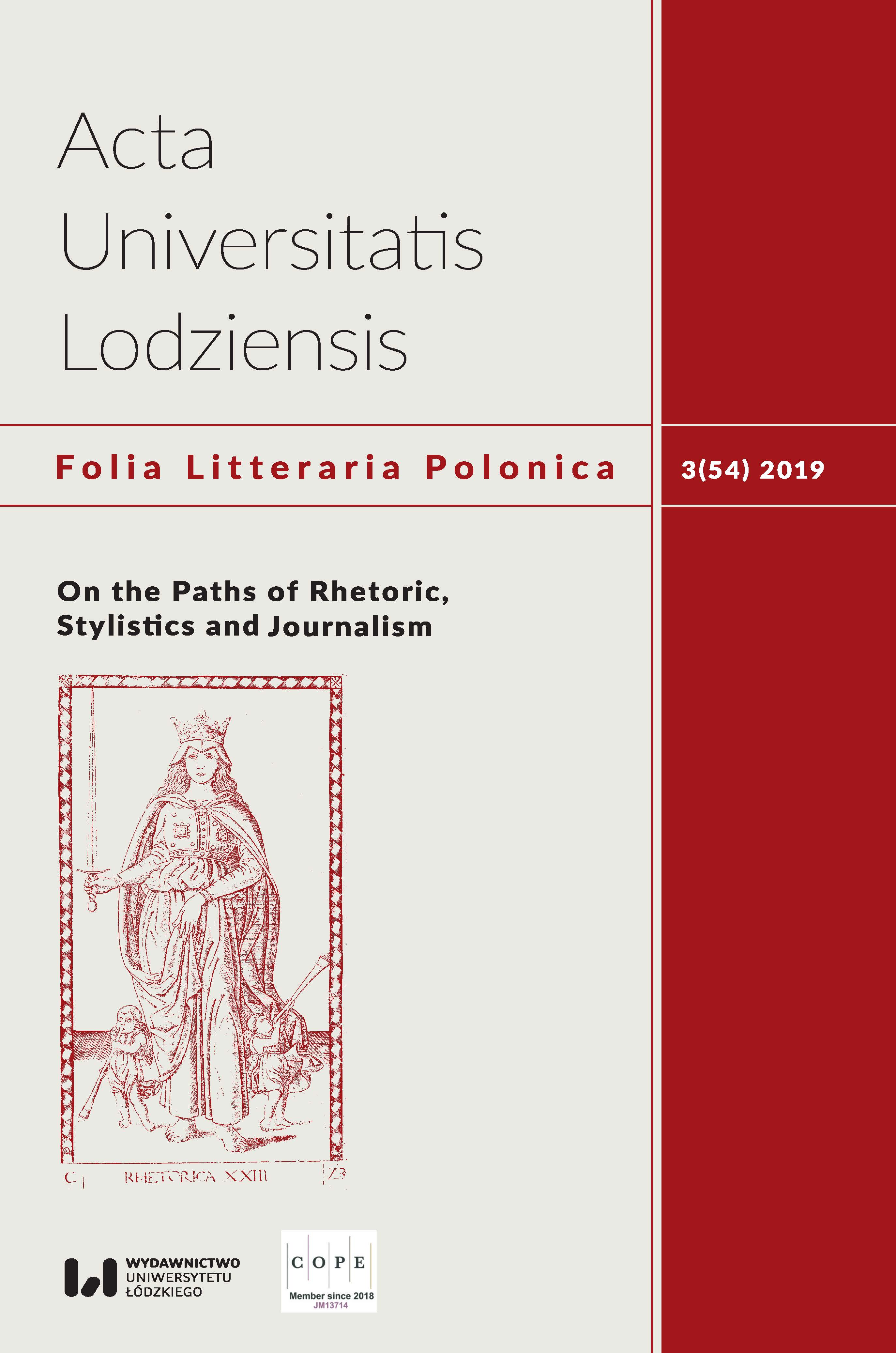Rhetorical Styles in Knowledge Communication
Rhetorical Styles in Knowledge Communication
Author(s): Maria ZałęskaSubject(s): Language and Literature Studies, Applied Linguistics, Rhetoric, Stylistics
Published by: Wydawnictwo Uniwersytetu Łódzkiego
Keywords: style; rhetoric; metalanguage; academic discourse; scientific popularization
Summary/Abstract: The author of the article applied the rhetorical framework of three styles (genera dicendi) to highlight some of the communicative practices employed in academic discourse. By utilising the persuasive resources of the plain style, authors focus on the rhetorical purpose of docere/probare, i.e. to teach/to prove. The sober matter-of-factness of the plain style suggests to readers that there is no style at all, convincing them that the content reflects reality without any rhetorical mediation. In choosing the persuasive means of the middle style, researchers combine epistemic and aesthetic goals, trying to reach the rhetoric purpose ofdelectare, i.e. to delight. An engaging style helps them draw readers into intellectually complex issues. The grand style facilitates the reaching of the rhetorical purpose of movere, i.e. to move or induce action. It serves to present science as a helpful resource for readers to make decisions in their lives, hence it is likely to be used by engaged scholars and public intellectuals.
Journal: Acta Universitatis Lodziensis. Folia Litteraria Polonica
- Issue Year: 54/2019
- Issue No: 3
- Page Range: 67-80
- Page Count: 14
- Language: English

